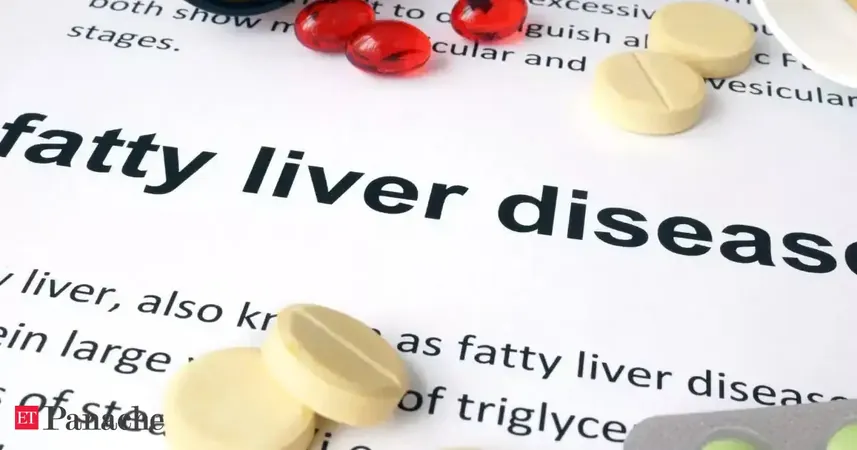
Revolutionizing Fatty Liver Treatment: Simple Vitamin Boosts Could Reverse Damage!
2025-09-14
Author: Ming
Fatty Liver Disease: A Growing Epidemic
Fatty liver disease is stealthily becoming one of the most pressing health crises worldwide, affecting millions both in wealthy and developing nations. Alarmingly, it often goes unnoticed until severe complications arise, making awareness and prevention essential.
The Two Faces of Fatty Liver Disease
Fatty liver disease is categorized into two main types: Alcohol-Linked Fatty Liver Disease (AFLD) and its metabolic counterpart, Metabolic Dysfunction-Associated Steatotic Liver Disease (MASLD), previously known as Non-Alcoholic Fatty Liver Disease (NAFLD). While AFLD is linked to excessive alcohol consumption, MASLD stems from issues like obesity and diabetes, impacting about 30% of people globally.
The silent nature of MASLD is particularly concerning, with around one in five cases potentially advancing to severely damaging forms, which can lead to cirrhosis and liver cancer. The urgency for effective intervention methods is greater than ever.
Vitamin Power: A Potential Game Changer
Recent studies from South Korea and Singapore have uncovered a surprising ally in the battle against fatty liver disease—vitamins B3, B12, and folic acid. These nutrients may not just be helpful but could actually help reverse liver damage by reducing fat buildup and inflammation.
Researchers found that vitamin B3 (niacin) can lower levels of a damaging molecule called microRNA-93 (miR-93) that exacerbates fatty liver symptoms. In trials with animal models, B3 significantly improved liver health by enhancing fat metabolism.
Moreover, vitamins B12 and folic acid have shown promise in alleviating liver cell damage in advanced stages of the disease, suggesting they might be potent tools for protection and recovery.
Why This Matters to You
What sets these vitamin solutions apart is their affordability and availability, especially in low- and middle-income regions where fatty liver disease rates are rising. However, caution is advised as high doses of niacin may provoke side effects.
Ultimately, this groundbreaking research could transform treatment strategies, leading doctors to prescribe these essential vitamins alongside lifestyle changes—providing a practical roadmap to better liver health.
The Best Defense: Prevention
While these developments are encouraging, prevention remains paramount. A balanced diet, regular exercise, and effective management of related conditions such as diabetes and high cholesterol are still the best ways to protect your liver from damage.
Stay informed and proactive—your liver will thank you!






 Brasil (PT)
Brasil (PT)
 Canada (EN)
Canada (EN)
 Chile (ES)
Chile (ES)
 Česko (CS)
Česko (CS)
 대한민국 (KO)
대한민국 (KO)
 España (ES)
España (ES)
 France (FR)
France (FR)
 Hong Kong (EN)
Hong Kong (EN)
 Italia (IT)
Italia (IT)
 日本 (JA)
日本 (JA)
 Magyarország (HU)
Magyarország (HU)
 Norge (NO)
Norge (NO)
 Polska (PL)
Polska (PL)
 Schweiz (DE)
Schweiz (DE)
 Singapore (EN)
Singapore (EN)
 Sverige (SV)
Sverige (SV)
 Suomi (FI)
Suomi (FI)
 Türkiye (TR)
Türkiye (TR)
 الإمارات العربية المتحدة (AR)
الإمارات العربية المتحدة (AR)